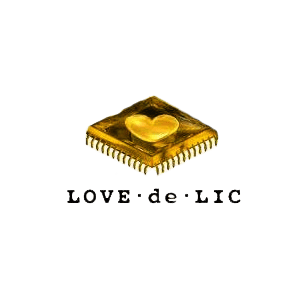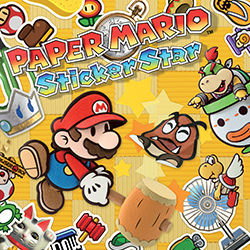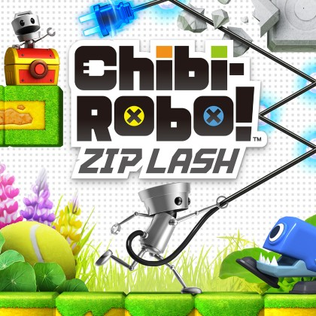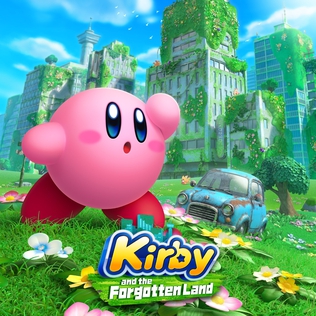
Donkey Kong Country is a 1994 platform game developed by Rare and published by Nintendo for the Super Nintendo Entertainment System (SNES). It is a reboot of Nintendo's Donkey Kong franchise and follows the gorilla Donkey Kong and his nephew Diddy Kong as they set out to recover their stolen banana hoard from the crocodile King K. Rool and his army, the Kremlings. The single-player traverses 40 side-scrolling levels as they jump between platforms and avoid obstacles. They collect items, ride minecarts and animals, defeat enemies and bosses, and find secret bonus stages. In multiplayer modes, two players work cooperatively or race each other.

GameSpy was an American provider of online multiplayer and matchmaking middleware for video games founded in 1999 by Mark Surfas. After the release of a multiplayer server browser for Quake, QSpy, Surfas licensed the software under the GameSpy brand to other video game publishers through a newly established company, GameSpy Industries, which also incorporated his Planet Network of video game news and information websites, and GameSpy.com.

Skip Ltd. was a Japanese video game developer that had a close relationship with Nintendo. Nintendo published all of their Japanese releases; with the only notable exception being LOL, which skip Ltd. published independently. The company's staff included prominent developers from Square such as Kenichi Nishi and Keita Eto. In October 2019, it was reported by OneControllerPort.com that the company had changed its name to Skip Inc. the previous year and had become inactive on all social media. By August 2020, it was reported that the company may have become defunct. In March 2024, a former employee confirmed the company had shut down.

Tose Co., Ltd. is a Japanese video game development company based in Kyoto. It is mostly known for developing Nintendo's Game & Watch Gallery series, various Dragon Ball games, as well as other Nintendo products. Tose has developed or co-developed over 1,000 games since the company's inception in 1979, but is virtually never credited in the games themselves. Tose maintains a policy of having no creative input into the work they do, going so far as to refuse to put their names in the credits for most of the games they work on. As such, Tose has gained a reputation for being a "ghost developer".
Donkey Kong is a video game series and media franchise created by the Japanese game designer Shigeru Miyamoto for Nintendo. It follows the adventures of Donkey Kong, a large, powerful gorilla, and other members of the Kong family of apes. Donkey Kong games include the original arcade game trilogy by Nintendo R&D1; the Donkey Kong Country series by Rare and Retro Studios; and the Mario vs. Donkey Kong series by Nintendo Software Technology. Various studios have developed spin-offs in genres such as edutainment, puzzle, racing, and rhythm. The franchise also incorporates animation, printed media, theme parks, and merchandise.

Kirby is an action-platform video game series developed by HAL Laboratory and published by Nintendo. The series centers around the adventures of Kirby as he fights to protect and save his home on the distant Planet Popstar from a variety of threats. The majority of the games in the series are side-scrolling platformers with puzzle-solving and beat 'em up elements. Kirby has the ability to inhale enemies and objects into his mouth, spitting them out as a projectile or eating them. If he inhales certain enemies, he can gain the powers or properties of that enemy manifesting as a new weapon or power-up called a Copy Ability. The series is intended to be easy to pick up and play even for people unfamiliar with action games, while at the same time offering additional challenge and depth for more experienced players to come back to.
Taro Kudo is a Japanese video game designer and video game music composer. He is best known for his work on the Mario role-playing games. He began his career working for Konami and Square in the 1990s, then joined fellow ex-Square designers at Love-de-Lic in 1996, where he designed UFO: A Day in the Life. Kudo worked as company director for Vanpool prior to its disestablishment.
Kenichi Nishi is a Japanese video game designer. He has helped found a number of notable video game companies and develops games at Route24, his own private limited company. The number 24 in the title comes from its founder's name: "Ni" (2) and "Shi" (4).

Love-de-Lic, Inc., stylised as LOVE•de•LIC, was a Japanese video game developer created by Kenichi Nishi in 1995. Many of its personnel were former Square employees. The firm folded in 2000 after creating three games. Many employees went on to work for other small and independent gaming businesses, including skip Ltd., Vanpool, and Punchline.

Paper Mario: Sticker Star is a 2012 role-playing video game developed by Intelligent Systems and published by Nintendo for the Nintendo 3DS. Following Super Paper Mario (2007), it is the fourth installment in the Paper Mario series and part of the larger Mario franchise; it is the first game in the series released on a handheld console. In the game, the protagonist Mario and a new ally named Kersti travel across the Mushroom Kingdom to retrieve the six Royal Stickers scattered by Bowser. The game was released in November 2012 in North America and December 2012 overseas.

Dillon's Rolling Western, known in Japan as The Rolling Western, is a downloadable video game developed by Vanpool and published by Nintendo for the Nintendo 3DS. It is the first game in the Dillon series. Released exclusively through the system's Nintendo eShop online storefront, the game features Dillon, an anthropomorphic armadillo who must defend frontier villages from walking rock-like monsters. Dillon's Rolling Western combines elements of 3D exploration, action sequences and tower defense and was first unveiled at E3 2011 as The Rolling Western.

Dillon's Rolling Western: The Last Ranger, known in Japan as The Rolling Western: Saigo no Yōjinbō, is a downloadable video game developed by Vanpool and published by Nintendo for the Nintendo 3DS. It is the sequel to the video game Dillon's Rolling Western released a year earlier on the Nintendo 3DS.

Nintendo Entertainment Planning & Development Division, abbreviated Nintendo EPD, is the largest division within the Japanese video game company Nintendo. The division focuses on developing and producing video games, mobile apps, and other related entertainment software for the company. Nintendo EPD was established in September 2015 after merging their Entertainment Analysis & Development and Software Planning & Development divisions.

Paper Mario: Color Splash is a 2016 role-playing video game developed by Intelligent Systems and published by Nintendo for the Wii U console. It is the fifth installment in the Paper Mario series, within the larger Mario franchise. The story follows Mario and his new ally Huey on a quest to save Prism Island and rescue Princess Peach from Bowser.
Paper Mario is a video game series and part of the Mario franchise, developed by Intelligent Systems and published by Nintendo. It combines elements from the role-playing, action-adventure, and puzzle genres. Players control a paper cutout version of Mario, usually with allies, on a quest to defeat the antagonist. The series consists of six games and one spin-off; the first, Paper Mario (2000), was released for the Nintendo 64, and the most recent, a 2024 remake of 2004's Paper Mario: The Thousand-Year Door, for the Nintendo Switch.

Paper Mario: The Origami King is a 2020 role-playing video game developed by Intelligent Systems and published by Nintendo for the Nintendo Switch console. Following Paper Mario: Color Splash (2016), it is the sixth game in the Paper Mario series, which is part of the larger Mario franchise. The story follows Mario and his friends as he sets out on a journey to prevent the Mushroom Kingdom from being transformed into origami. To do so, Mario must free Princess Peach's castle from five decorative streamers that extend across the kingdom.

Chibi-Robo! Zip Lash is a 2015 side-scrolling platformer developed by Skip Ltd. and Vanpool and published by Nintendo for the Nintendo 3DS. It is the fifth installment in the Chibi-Robo! series, and the second Chibi-Robo! game for the 3DS after Chibi-Robo! Photo Finder (2014). Zip Lash players control the character Chibi-Robo, a robot that is tasked with roaming the world and defending its natural resources from a fleet of invading aliens. Chibi-Robo is equipped with a cord and plug with which he can attack enemies and get to inaccessible places. Throughout the levels, the player can find collectibles such as big coins, Chibi-Tots, and snacks that are based on real-world brands.

Kirby Fighters 2 is a 2020 fighting game for the Nintendo Switch and is the direct sequel to Kirby Fighters Deluxe. Developed by HAL Laboratory and Vanpool and published by Nintendo, the game features characters and assets from the Kirby franchise and uses the Super Kirby Clash game engine. The game released worldwide in September 2020, but was accidentally leaked prior on the Play Nintendo website.

Kirby and the Forgotten Land is a 2022 action-platform game developed by HAL Laboratory and published by Nintendo for the Nintendo Switch. It is the thirteenth mainline installment in the Kirby series, as well as the first game in the series in full 3D, excluding spin-offs. The player controls Kirby in an adventure through the titular forgotten land called the New World to rescue Waddle Dees kidnapped by the ferocious Beast Pack. To complete each stage to save the Waddle Dees, Kirby can use a wide range of copy abilities to help battle enemies and progress.













